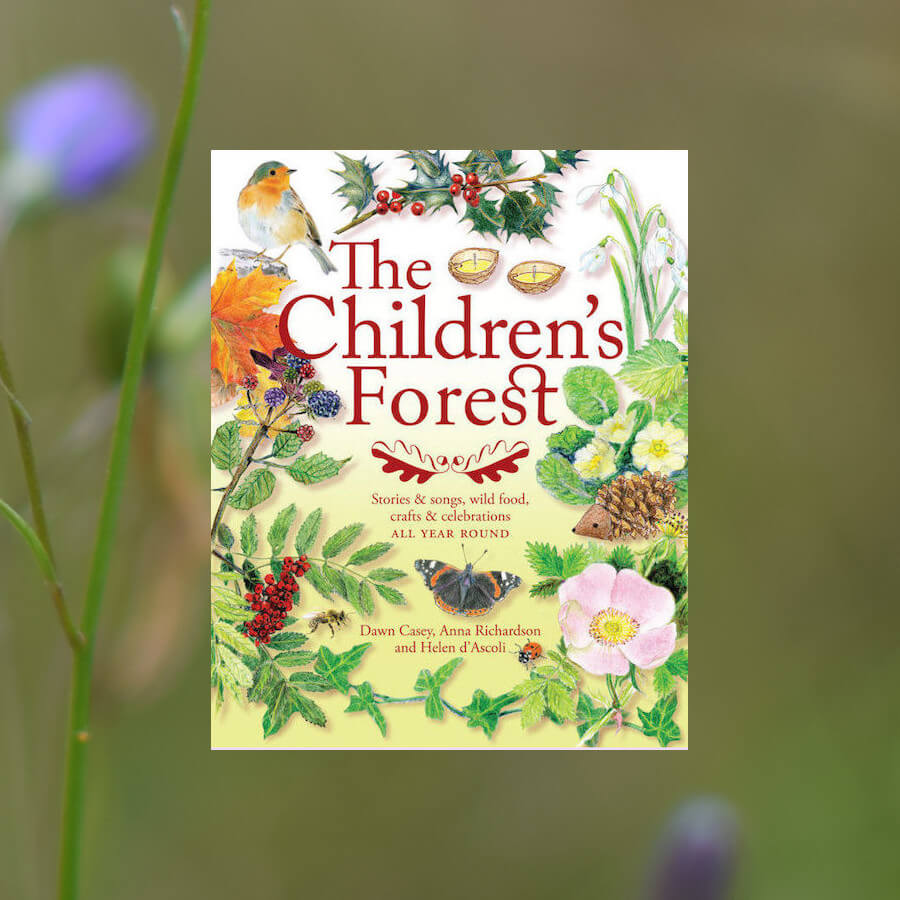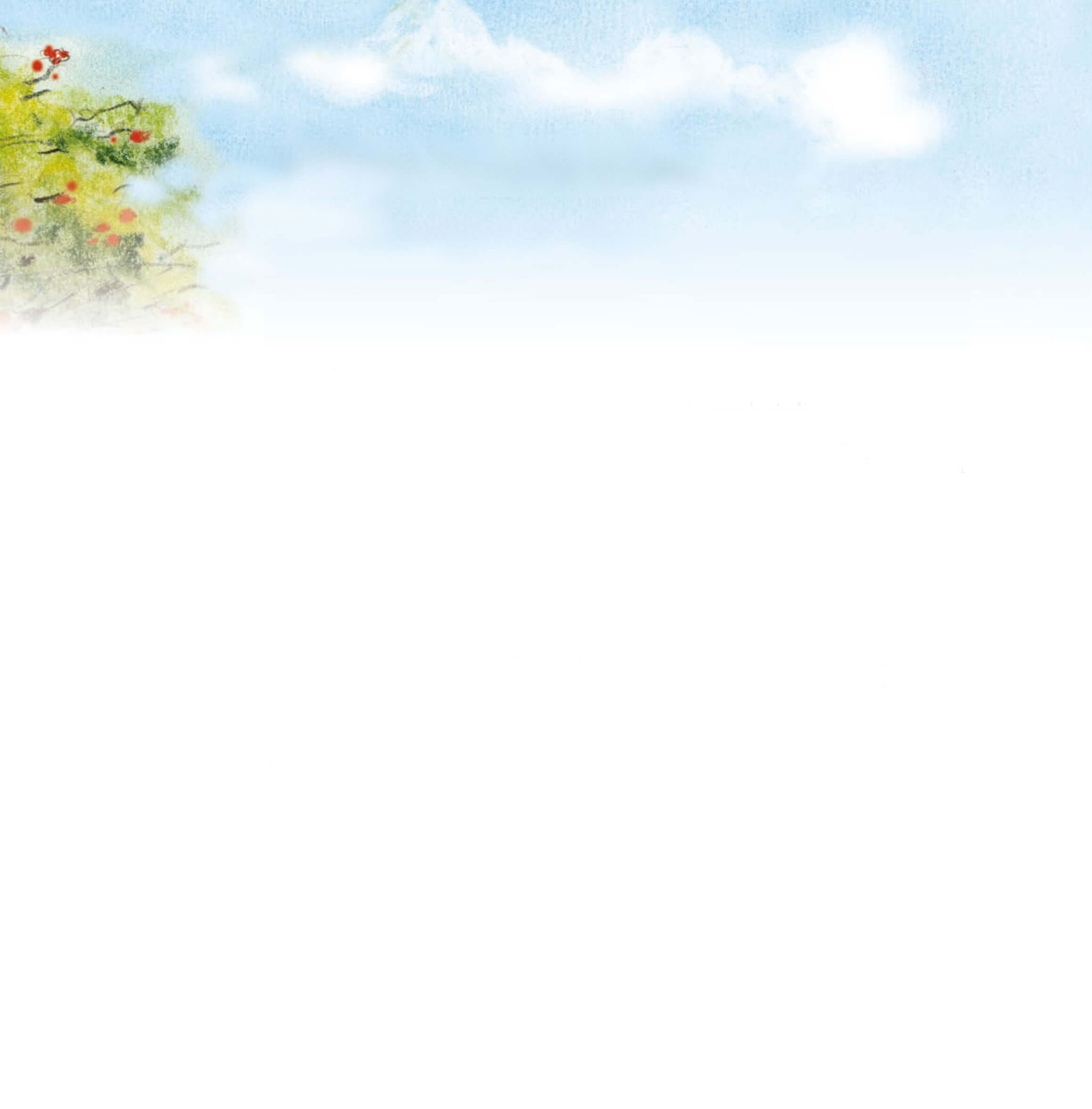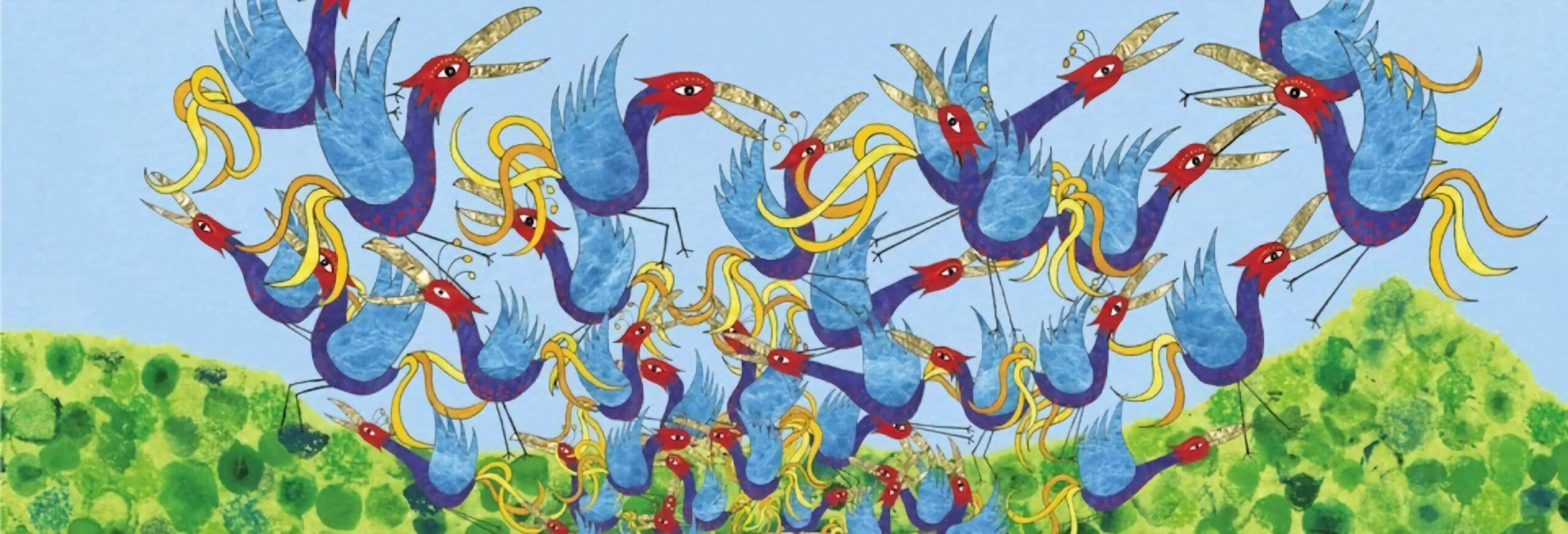
As the temperature in England soars this week we are celebrating Lughnasa, the late summer festival halfway between the summer solstice and the autumn equinox.
Lughnasa was first named after the Irish hero Lugh, who many think of as a sun god. In later times, Lughnasa was named Lammas – ‘loaf-mass’ – a time to bless the newly baked bread and give thanks for the harvest of grain.
Celebrate with us by taking this Lughnasa Imaginary Journey, from The Children’s Forest: Stories and songs, wild food, crafts and celebrations all year round.

Lughnasa Imaginary Journey
On a warm day find a sunny glade or meadow and stretch out comfortably. Lick your finger and gently brush it across your eyelashes so they become damp. Now squint and move your gaze till you can see rainbow light and patterns dance in your eyes (be careful not to look directly at the sun). Take a couple of deep breaths. Relax and close your eyes.
Imagine you are lying on top of a hill with the buzzards circling high above you, calling loudly; the deer are listening, quietly resting in the cool of the forest. The sounds of the tractor bringing in the harness are far below and the golden sun warms you.
You are melting into the earth like softening butter, letting go of the need to do anything, just enjoying being on the earth.
Have a daydream: imagine you could be anything you like. You could be a butterfly dancing across the meadow, or an acorn nestled amongst the oak leaves, swaying in the breeze, with nothing to do but ripen. (Leave time for the daydream.)
Come back from you daydream, move your fingers and toes, stretch you legs and arms and open your mouth really wide to see if you can yawn to wake yourself up.
Open your eyes and slowly sit up. If you want to, share your daydream with a friend.
For more Lughnasa-inspired stories and activities, and other seasonal stories and crafts see The Children’s Forest: Stories and songs, wild food, crafts and celebrations all year round by Dawn Casey, Anna Richardson and Helen d’Ascoli.



